Recent Blog Posts
Catastrophic Injuries Can Occur from Lack of Supervision
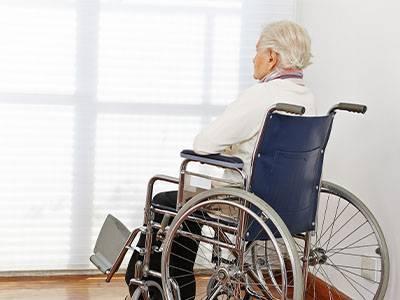 One of the primary responsibilities of any nursing home is to supervise nursing home residents and ensure their safety. Most nursing home residents have one, if not more, significant medical concerns. They may suffer from cognitive decline that makes them at risk for wandering or elopement from the facility, physical conditions that require round-the-clock care, or medical issues that increase the chances of falling or other accidents.
One of the primary responsibilities of any nursing home is to supervise nursing home residents and ensure their safety. Most nursing home residents have one, if not more, significant medical concerns. They may suffer from cognitive decline that makes them at risk for wandering or elopement from the facility, physical conditions that require round-the-clock care, or medical issues that increase the chances of falling or other accidents.
Unfortunately, understaffing is a frequent problem in nursing homes, and when there are not enough staff to provide adequate supervision, catastrophic injuries can occur. Residents may wander off the premises of the facility and sustain serious bodily harm or even death. They may fall without anyone noticing until it is too late, leading to a traumatic brain injury. Without appropriate observation, residents may suffer from malnutrition or dehydration. In extreme cases, unsupervised residents may even suffer physical and sexual abuse at the hands of staff or other residents.
Claims for Failure to Provide Appropriate Medical Care
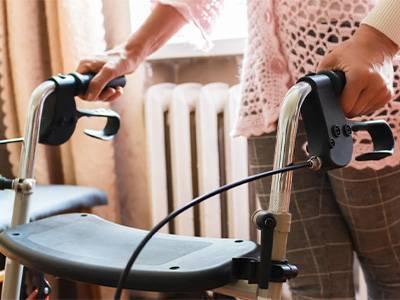 Nursing homes help residents with everyday needs like bathing and eating. However, nursing home staff are also expected to provide medical care, if needed. When they fail to provide appropriate medical care, or when there is a delay in providing such care, the resident or the resident's surviving family may be able to file a claim against the facility and recover compensation for damages. A successful claim requires evidence that the nursing home staff failed in their duty of care towards the resident and that this failure caused an injury or illness.
Nursing homes help residents with everyday needs like bathing and eating. However, nursing home staff are also expected to provide medical care, if needed. When they fail to provide appropriate medical care, or when there is a delay in providing such care, the resident or the resident's surviving family may be able to file a claim against the facility and recover compensation for damages. A successful claim requires evidence that the nursing home staff failed in their duty of care towards the resident and that this failure caused an injury or illness.
When is a Nursing Home Required to Provide Medical Treatment?
Nursing home staff are primarily responsible for routine medical needs such as administering medication and helping with daily living tasks. If a resident requires immediate emergency medical care or has medical needs above and beyond the facility's capabilities, the nursing home must secure the appropriate treatment for the resident. This may require ambulance transportation to a hospital.
Fatal Breathing Tube Mistakes and Nursing Home Negligence
 Most would agree that nursing home staff and medical professionals have extremely demanding jobs - especially in today's world, where the elderly population is growing and nursing home facilities are chronically understaffed. Nursing home workers must always be mindful of the needs and safety of their patients because when an error or omission occurs during their care, it can have devastating consequences.
Most would agree that nursing home staff and medical professionals have extremely demanding jobs - especially in today's world, where the elderly population is growing and nursing home facilities are chronically understaffed. Nursing home workers must always be mindful of the needs and safety of their patients because when an error or omission occurs during their care, it can have devastating consequences.
Although most can sympathize with the difficulty facing nursing home staff, this is not an excuse for substandard care or neglect. When a nursing home mistake or oversight involving a breathing tube leads to a resident's death, the nursing home may be liable for damages.
Deadly Breathing Tube Errors
Breathing tubes or endotracheal tubes (ET) are used to help a nursing home resident who cannot breathe on his or her own. The tube is placed in the resident's airway and hooked up to a ventilator. When used correctly, breathing tubes can be life-saving devices. However, a deadly mistake can occur when the tube is incorrectly inserted or secured. Nursing home staff must carefully monitor a resident's vital signs while they are intubated and recognize signs of distress. Breathing tubes can become clogged, cutting off the supply of oxygen to the resident's brain. This can cause brain damage in a matter of minutes and death soon after.
Chemical Restraint of a Nursing Home Resident Can Lead to Avoidable Injury or Death
 In a previous blog, we discussed when nursing home staff may use physical restraints on a resident. According to the Illinois Nursing Home Care Act, physical restraints must be a last resort solution for residents who are at risk of hurting themselves or others. The restraints must be the least restrictive form of confinement possible, and the facility must get consent from the resident or the resident’s guardian before using restraints.
In a previous blog, we discussed when nursing home staff may use physical restraints on a resident. According to the Illinois Nursing Home Care Act, physical restraints must be a last resort solution for residents who are at risk of hurting themselves or others. The restraints must be the least restrictive form of confinement possible, and the facility must get consent from the resident or the resident’s guardian before using restraints.
Chemical restraints are drugs used to sedate residents. Although it is disturbingly common, the use of chemical restraints on nursing home residents is extremely dangerous.
Examples of Chemical Restraints
The Nursing Home Care Act states that restraints cannot be used to punish a nursing home resident. Furthermore, staff cannot restrain a resident for their own convenience. Sedated residents may be easier to “deal with” but giving a drug to a resident simply to make him or her more cooperative is unethical and unlawful.
Who is Liable if a Nursing Home Resident is Injured by Another Resident?
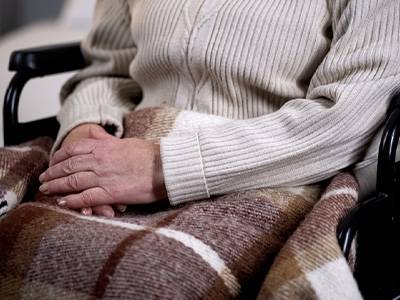 Many people are surprised to learn that one of the most pressing concerns in many nursing homes is the threat of resident-on-resident harm. Nursing home residents who are suffering from cognitive impairment or other illnesses may lash out at other residents. In some cases, altercations between nursing home residents leads to serious injuries.
Many people are surprised to learn that one of the most pressing concerns in many nursing homes is the threat of resident-on-resident harm. Nursing home residents who are suffering from cognitive impairment or other illnesses may lash out at other residents. In some cases, altercations between nursing home residents leads to serious injuries.
Preventing Physical Confrontations Between Nursing Home Residents
Illnesses that affect a person’s perception of reality can make the person act in ways he or she never would otherwise. A sweet grandmother who never had a mean thing to say may develop Alzheimer’s disease and turn into a completely different person. She may swear, throw things across the room, or say cruel things to other residents and staff. This is one reason that it is so crucial that nursing home staff be careful about leaving nursing home residents alone together.
Are Nursing Homes Allowed to Physically Restrain Residents?
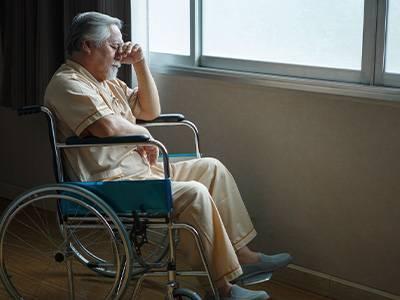 Nursing homes are tasked with the crucial responsibility of caring for some of the most vulnerable members of our society. Most nursing home residents have serious health conditions that make living independently impossible, and as such, require a great degree of care to ensure their safety and well-being. Dementia and related conditions often exacerbate the situation, making nursing home residents at an even greater risk of wandering into dangerous areas of the nursing home and being injured.
Nursing homes are tasked with the crucial responsibility of caring for some of the most vulnerable members of our society. Most nursing home residents have serious health conditions that make living independently impossible, and as such, require a great degree of care to ensure their safety and well-being. Dementia and related conditions often exacerbate the situation, making nursing home residents at an even greater risk of wandering into dangerous areas of the nursing home and being injured.
Keeping nursing home residents safe and protecting them from harm is a top priority for nursing home staff. In some cases, this may require physically restraining the nursing home resident. However, nursing homes must follow strict regulations when it comes to restraining residents.
Sepsis: A Deadly Threat to Nursing Home Residents
 Sepsis is an often-deadly medical condition that can pose serious risks for nursing home residents. In fact, it is estimated that about half of all deaths in nursing homes are due to sepsis. It is important to be aware of the symptoms of sepsis and what steps should be taken if a loved one contracts the infection.
Sepsis is an often-deadly medical condition that can pose serious risks for nursing home residents. In fact, it is estimated that about half of all deaths in nursing homes are due to sepsis. It is important to be aware of the symptoms of sepsis and what steps should be taken if a loved one contracts the infection.
What Is Sepsis?
Put simply, sepsis is an infection in the bloodstream caused by bacteria, viruses, or fungi. When bacteria enters the bloodstream, it triggers an immune response that causes inflammation and damage to tissues and organs throughout the body. Left untreated, sepsis can lead to organ failure and death. Sepsis can be caused by infections acquired at a hospital or nursing home, but it can also occur as a result of poor hygiene or inadequate sterilization techniques used by nursing home staff. The most common types of infections that can lead to sepsis include those that begin in the lungs, skin, urinary tract, and gastrointestinal tract.
Nursing Home Resident Declared Dead but Found Alive at Funeral Home
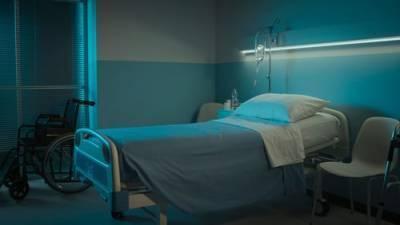 A Long Island skilled nursing facility is facing serious criticism and an ongoing investigation after one of its residents was declared dead, only for the 82-year-old woman found to be breathing at a nearby funeral home a few hours later. Currently, there are countless questions that remain unanswered, and there has been no official statement yet from the woman’s family.
A Long Island skilled nursing facility is facing serious criticism and an ongoing investigation after one of its residents was declared dead, only for the 82-year-old woman found to be breathing at a nearby funeral home a few hours later. Currently, there are countless questions that remain unanswered, and there has been no official statement yet from the woman’s family.
A Potentially Tragic Turn of Events
According to reports, the resident was pronounced dead at 11:15 this past Saturday morning at a nursing home in Port Jefferson, New York. Suffolk County police say the woman was transported to a funeral home in the nearby hamlet of Miller Place about two hours later. About 40 minutes after being taken to the funeral home, the woman was found to be breathing by funeral home staff members.
The funeral home staff notified authorities and had the woman transported to a hospital. Updates were not made available regarding her condition. In addition, authorities have not released the woman’s identity. The funeral home issued a statement that said they would not comment further in order to protect the family’s privacy. The nursing home has, thus far, not provided news outlets with any comment whatsoever.
New Legislation Gives Illinois Nursing Homes Two More Years to Increase Staffing
 The state of Illinois recently passed an “omnibus” health care bill that will, among other considerations, give nursing homes two more years to meet staffing requirements before being fined by the Department of Public Health. This bill comes at a time when the quality of care for nursing home residents is under heightened scrutiny—and for good reason. Understaffing in nursing homes and assisted living facilities can lead to a host of problems for some of the most vulnerable Illinois residents.
The state of Illinois recently passed an “omnibus” health care bill that will, among other considerations, give nursing homes two more years to meet staffing requirements before being fined by the Department of Public Health. This bill comes at a time when the quality of care for nursing home residents is under heightened scrutiny—and for good reason. Understaffing in nursing homes and assisted living facilities can lead to a host of problems for some of the most vulnerable Illinois residents.
Staffing Concerns Have Lasted Far Too Long
Often abbreviated as “NHCA,” the Illinois Nursing Home Care Act (210 ILCS 45/) sets out specific rules and regulations that long-term care facilities must follow in Illinois. The NHCA states that each facility must provide “adequate” staffing levels in order to ensure the highest quality of care for its residents. In March 2020, the Department of Public Health issued emergency rules that set minimum staffing requirements for nursing homes across the state based on occupancy levels, as well as additional requirements related to infection control and safety protocols.
The Dangers of Medication Errors in Nursing Homes and Assisted Living Facilities
 A medication error can happen in any healthcare setting, and nursing homes and assisted living facilities are no exception. When these errors occur, they can cause significant physical and emotional harm to the resident. It is important for family members of those affected to understand what their rights are in the event of a medication error.
A medication error can happen in any healthcare setting, and nursing homes and assisted living facilities are no exception. When these errors occur, they can cause significant physical and emotional harm to the resident. It is important for family members of those affected to understand what their rights are in the event of a medication error.
If you have a loved one in a nursing home, you should know how medication errors can occur in nursing homes, the types of injuries that may result from them, and what kind of compensation may be available.
How Do Medication Errors Occur?
Medication errors can occur from a variety of causes. Some of the most common include but are not limited to:
-
Administering the wrong medication or dosage - If a staff member mixes up the doctor’s orders, a patient could get the wrong medication or the wrong dosage of the right medication. The patient might even miss a dose of their necessary medication.

 312-535-4625
312-535-4625





